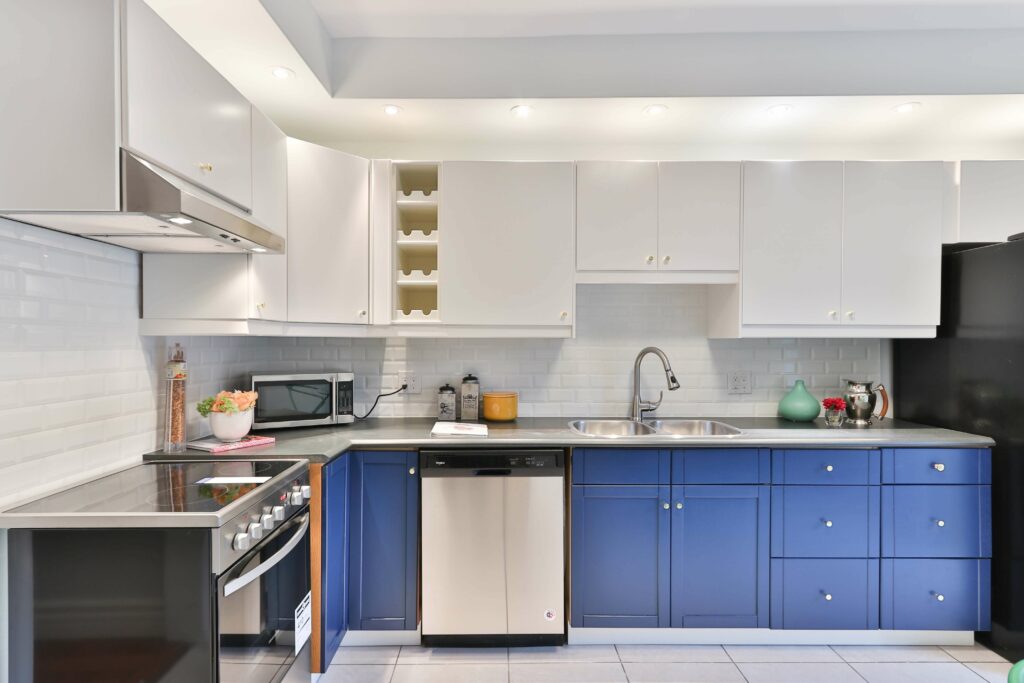Are you ready to take the next steps and grow your cleaning business? Here are seven things to know.
Your business as a residential cleaner is doing well. You have a good customer base, great reviews, and you like what you do. All this being said, you’re ready for something more. You’re ready to grow your cleaning business and move from residential to commercial cleaning.
It seems like a straightforward move. You already have the knowledge and skills to run a business, and you have a few employees you love working with. How hard can it be? Get a few office accounts and go from there, right?
While, yes, there are plenty of similarities, there are also a few significant differences to consider.
Grow your business like never before. Learn more today with a free discovery call and see for yourself how Janitorial Manager can help your organization become more efficient and more profitable!
Getting Ready to Grow Your Cleaning Business from Residential to Commercial: 7 Things to Consider
1. Training. If you have a good work ethic and an eye for detail, you can be quite successful as a residential cleaner. Keep in mind, however, commercial cleaning takes a bit more training. For example, the equipment you’re working with will be different. You may need to use new equipment like floor buffers that require some knowledge and mechanical skills to operate. There’s also a lot more foot traffic in commercial spaces, so how you clean carpeting, for example, can change.
2. Equipment. As mentioned above, to grow your cleaning business from residential to commercial, you’ll almost definitely need to upgrade your equipment. Depending on the spaces, you may need anything from larger mop buckets to new vacuum cleaners to floor machines. You don’t have to buy this equipment; it’s possible to rent it. In any case, you’ll need to plan for start-up cash.
3. Work style. In addition to the equipment, the way you work is also different. In commercial cleaning, you likely aren’t dealing as much with personal items like mail, laundry, pets, and kitchen appliances (though many breakrooms will have a microwave and refrigerator). You’ll develop a routine based on the most efficient way to work a job rather than altering your plans based on weekly homeowner requests.
4. Work hours. While residential cleaning often takes place during the day, a lot of commercial cleaning jobs take place after hours or even overnight. That doesn’t mean you only have to work nights. It doesn’t even mean you have to take night jobs at all. It’s your decision on what jobs you want to bid for. It’s just something to be aware of. It’s also worth pointing out that many of these jobs are negotiable. You may be able to work something out with a client, so you and your team can work during regular business hours or even early in the morning.
5. Different spaces. This might be one of the most significant changes you’ll encounter as you grow your cleaning business from residential to commercial cleaning. Instead of a home with a handful of small rooms, you’ll clean spaces that may be laid out like humongous rectangles or squares. And while there will be smaller conference rooms, cubicles, and reception areas, you won’t be dealing with antique candlesticks, family heirlooms, or dog beds.
6. Walkthroughs. Since residential and commercial spaces are so different, you’ll need to do a walkthrough to determine a proper rate for a job. Be aware, too, that many commercial cleaning contracts base rates on square footage and specific jobs. For example, while residential customers may expect you to clean windows, that’s often a specific line item on commercial bids.
7. Cash flow. The payment system can be very different when you move from residential to commercial cleaning. With commercial accounts, you generally have to submit an invoice, usually at the end of the month. That invoice then goes through the accounting department, and they pay you. However, they may only run through invoices once per week or even once per month which means there may be a big time gap between the time you do the work and the time you get paid for the job. During that time, you still need to be able to cover things like payroll, equipment rentals or purchases, supply purchases, and so on.
Overall, some of these changes are pretty significant. Here’s the thing, though. You don’t have to make a transition all at once. If you want to test the waters, you can always look for one or two smaller commercial cleaning jobs and go from there. That’s a relatively low-risk way to explore the differences between residential and commercial cleaning.
Above all, remember that there are always learning experiences that come with new ventures. As you grow your cleaning business, you might make some mistakes right alongside your successes. In any case, as long as you learn from your mistakes, you’re improving, which can only mean good things for the future of your business.
Ready to reach new horizons? Take advantage of a free call with Janitorial Manager to see how our software can make your operation more successful.


